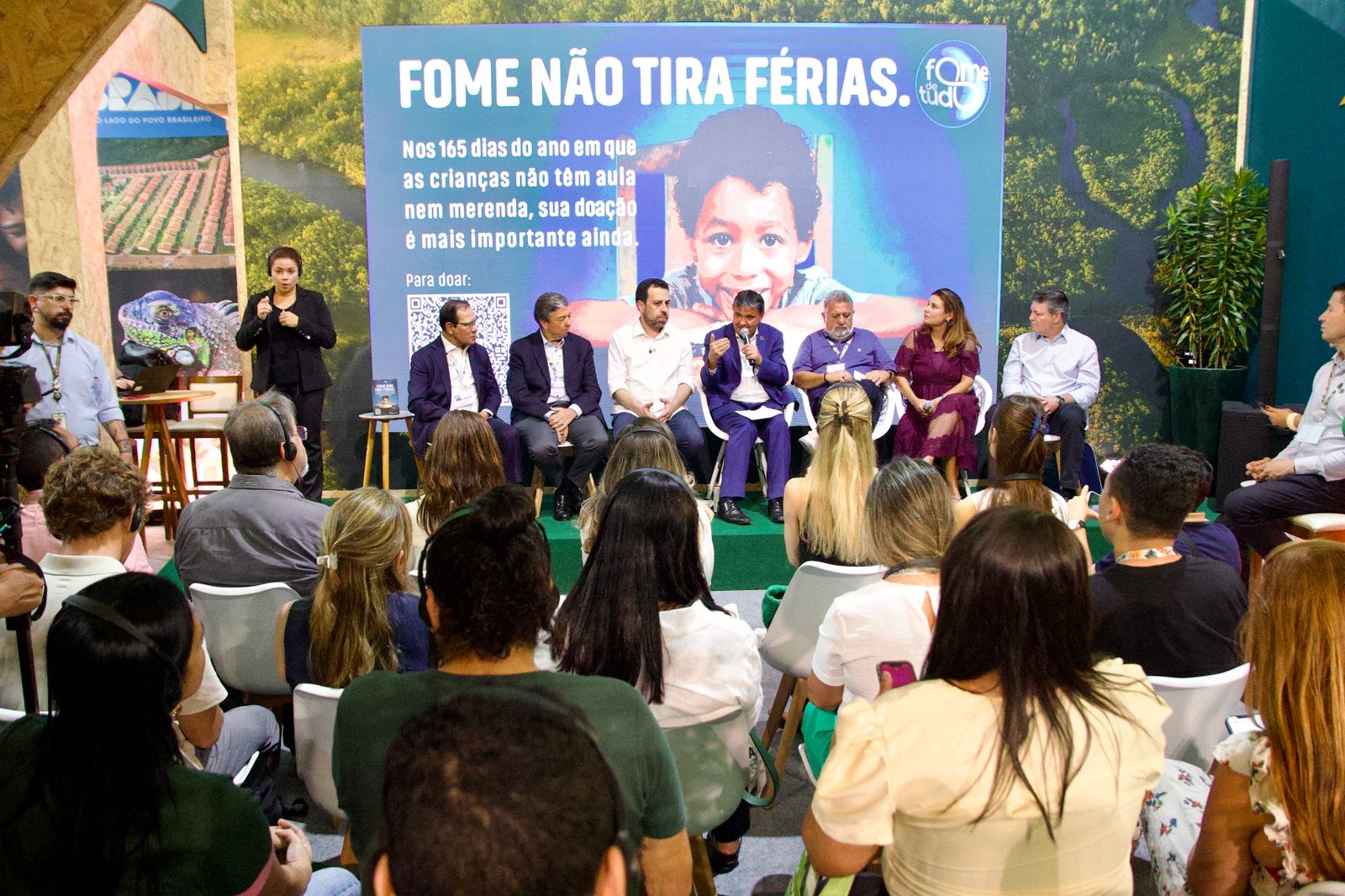
During COP30, held in Belém (PA), the Fome de Tudo Institute presented the “Hunger doesn’t go on Vacation” campaign, in partnership with the United Nations World Food Programme (WFP) and with support from Caixa Econômica Federal and Elo. This unprecedented initiative seeks to raise funds to ensure healthy, quality food for children during school breaks, when many of them are left without access to school meals, often their main nutritious meal of the day.
The launch took place at a panel discussion at Caixa Econômica in the Green Zone on November 12, attended by actress Úrsula Corona, founder and president of Instituto Fome de Tudo, and authorities such as Ministers Wellington Dias (Development and Social Assistance, Family, and Hunger Alleviation), Paulo Teixeira (Agrarian Development and Family Agriculture), and Guilherme Boulos (Secretary-General of the Presidency of the Republic). Caixa President Carlos Vieira and Elo CEO Giancarlo Greco also participated.
For Úrsula Corona, the campaign faces a structural challenge in the country. “Brazilian law provides for 200 school days on which children receive school meals. This means that, on the other 165 days of the year, many of them are left without access to adequate food. This campaign seeks to fill that gap, offering food security and dignity to these families,” she said.
In the pilot phase, the project aims to reach 1,000 children in public schools in cities across ten Brazilian states, including Manaus (AM), Cubatão (SP), Guaribas (PI), Vigia de Nazaré (PA), Jaguaripe (BA), Aracati and Itarema (CE), Recife (PE), Florianópolis (SC), Rio de Janeiro (RJ), and Cuité (PB). The selection of territories takes into account indicators of child poverty and food insecurity, in partnership with city halls and municipal departments.
Registered families with a per capita income of up to R$ 218 per month and children enrolled in public schools will receive a social card worth R$ 335 per month per child, which can be used to purchase food at accredited markets during school holidays. The model, based on WFP methodology, guarantees families autonomy of choice, an exclusive focus on food items, and a positive impact on the local economy.
The director of the WFP Center of Excellence against Hunger in Brazil, Daniel Balaban, highlighted the relevance of the initiative and the role of the WFP, the world’s largest humanitarian agency and winner of the 2020 Nobel Peace Prize. “Hunger does not wait for the school calendar. Ensuring that children have access to food even outside the classroom is essential to breaking the cycle of food insecurity and ensuring that they can grow up healthy and with dignity.”
For Igor Carneiro, Partnership Officer at the Center of Excellence, the campaign reinforces the power of multisectoral alliances. “This project shows the strength of working together. Public, private, and civil society institutions have come together around a common goal: to ensure that no child goes without healthy and nutritious food during school vacations. Without continuous nutrition, learning loses momentum, which impacts the development and productivity of an entire nation in the future.”
The expectation is that, after the pilot phase, the campaign will consolidate itself as a sustainable and scalable model for combating hunger during school holidays, complementing public policies on school meals and social protection.




